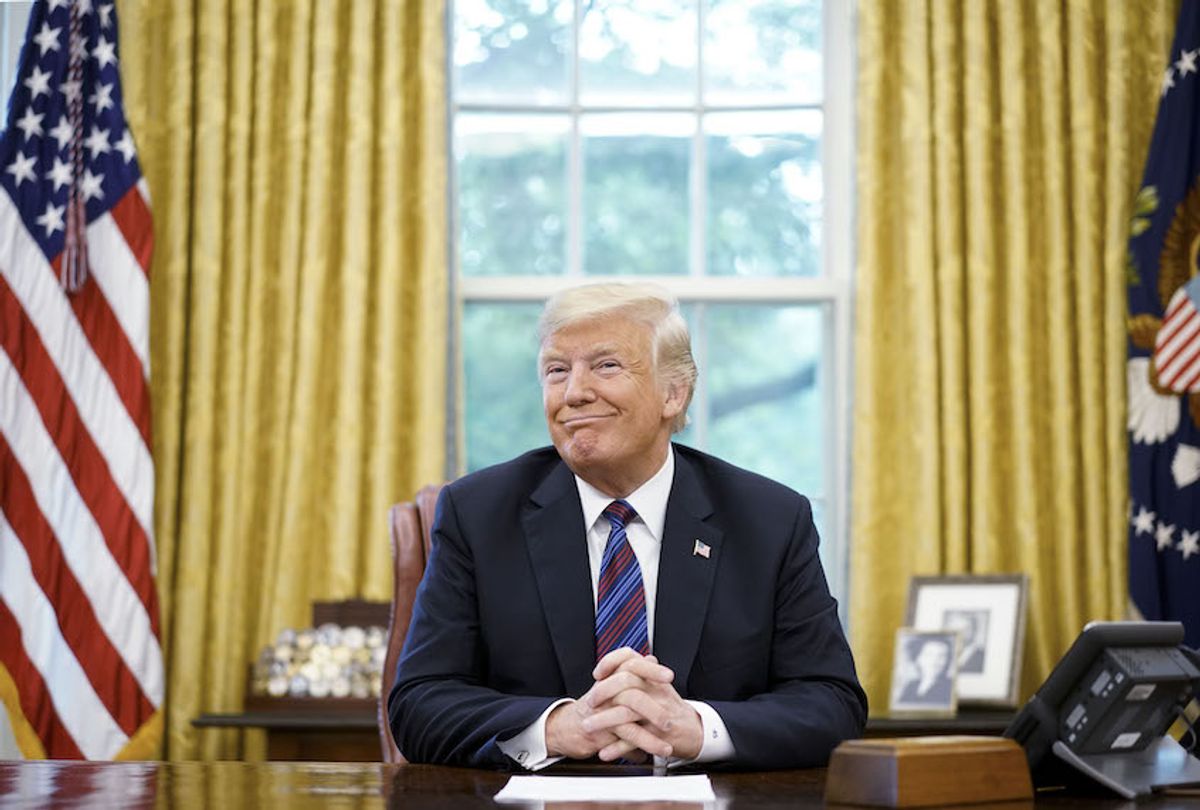President Donald Trump’s trade war raised prices for consumers and hurt the manufacturing industry, according to a report from economists on the Federal Reserve Board.
"The first comprehensive estimates" of the trade war’s effect on American manufacturers show that the tariffs have hurt the industry more than they helped, wrote Aaron Flaaen and Justin Pierce, two senior economists at the Federal Reserve's Industrial Output Section.
"We find that U.S. manufacturing industries more exposed to tariff increases experience relative reductions in employment as a positive effect from import protection is offset by larger negative effects from rising input costs and retaliatory tariffs," the report said.
In short, the economists concluded that the tariffs gave a “small boost” to manufacturers, which was “offset by larger drags from the effects” of rising costs and retaliatory tariffs.
Mother Jones summarized the main findings in a handy chart:
The report looked at a wide range of effects on the impacted sectors. In some cases, the tariffs were simply contradictory. While import tariffs may have helped protect some manufacturers from foreign competitors, tariffs on imported materials have increased costs for those same companies. Retaliatory tariffs imposed by China and other countries in response to the U.S. tariffs further “put U.S. firms at a disadvantage in those markets,” Flaaen and Pierce wrote.
As a result, manufacturing employment fell, and consumer prices increased. The economists acknowledged that their analysis only examined short-term trends, while long-term trends could show different effects. Trump has argued that the tariffs provide leverage for ongoing trade negotiations, but extensive data thus far shows that his trade war has devastated manufacturers, farmers and other industries.
The economists cited extensive existing research showing that “the majority of U.S. tariff increases are absorbed by U.S. retailers” and are almost entirely passed on to consumers in price increases. Some studies have found that American companies which engaged in trade with China saw “lower stock returns and higher default risk.” The report also acknowledged the political implications of the trade war, citing a study which concluded that it could "explain a shift in voting away from Republican House candidates in the 2018 election.”
The report follows months of extensive reporting on the ongoing manufacturing recession. It confirms what thousands of manufacturing firms have been saying for months: Tariffs are having the opposite effect of what the president claimed.
"There's been a lot of anecdotal evidence about how tariffs are behind the manufacturing slump. Now the Federal Reserve proves it, finding that the trade war is hurting the sector it was ostensibly supposed to help," ProPublica reporter Lydia DePillis tweeted. "The [White House] would say that it takes a while for supply chains to adjust, and manufacturers will recover as they find alternative input sources. Also theoretically, mounting pressure will eventually force the Chinese to knuckle under in a way that will rebalance global trade. Given that we haven't yet seen the text of the Phase One trade deal with China that's supposed to be signed imminently, that promise remains ... theoretical."
But the economists did not only find that the trade war is failing to help manufacturers. Their research suggests that tariffs simply do not work in any economy that relies on global supply chains.
"Our results suggest that the traditional use of trade policy as a tool for the protection and promotion of domestic manufacturing is complicated by the presence of globally interconnnected supply chains," Flaaen and Pierce wrote. "While the potential for both tit-for-tat retaliation on import protection and input-output effects on the domestic economy have long been recognized by trade economists, empirical evidence documenting these channels in the context of an advanced economy has been limited."

Shares